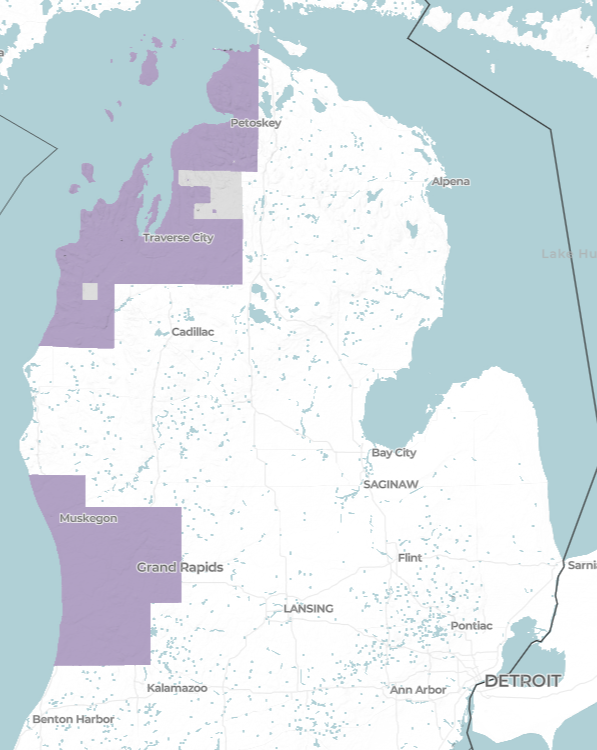NW Michigan Zoning Atlas project
In 2025 Housing North partnered with the Michigan Association of Planning (MAP) and Land Use Atlas Inc. (LUAI) to include communities in Northwest Michigan to the National Zoning Atlas platform, part of a larger project and vision to remove barriers to housing in NW Michigan. By the end of 2025, eight counties had been included.
Through Housing North, a regional nonprofit organization, whose mission is to build awareness, influence policy, and expand capacity so communities can create housing solutions that meet their unique needs, funders and units of government came together to create a strategy to have as many counties brought into the online interactive platform and digitize their zoning ordinances.
To achieve this, Housing North led various workshops and meetings through a two year period (2024-2025) including presentations at the annual Northwest Michigan Housing Summit. Housing North brought together speakers and key stakeholders from Western Michigan where a PILOT for this was launched in partnership with Housing Next, the University of Michigan and Michigan Association of Planning. They then held virtual and in-person meetings to share the opportunity and engage key stakeholders.
“The Housing Zoning Atlas” (HZA)— a term used by Housing North to clarify the goal of the zoning atlas project, which centers around housing)—currently includes eight counties across Northwest Michigan. Of these, Grand Traverse and Emmet counties have taken the next step by using the Housing Zoning Atlas results to pursue a community planning and growth project in partnership with Flywheel Companies and key local stakeholders. To learn more about the project and the funders, visit the Housing Zoning Atlas website.
The HZA will be updated at least every two years, and the remaining two counties (Wexford and Missaukee) are interested but waiting until some key zoning changes are made to complete the project.
Where are things now?
Findings from the HZA are being used for a soon-to-be-completed Grand Traverse County Housing Growth Corridor project that will be delivered in March 2026. This project was funded through Grand Traverse County Economic Development Corporation and the Brookby Foundation. The project deliverables will include three renderings and a guide for how to implement some of the proposed housing projects in Grand Traverse County. There will also be an interactive map available to the public.
In Emmet County, the results of the HZA are being used for a larger community planning project in partnership with the Petoskey Harbor Springs Area Community Foundation, the City of Petoskey, Emmet County and private donations. This kicked off in January and will include mapping and identifying key areas for housing opportunities using the results of the HZA and other critical layers including infrastructure, land use and more. To learn more about these projects email zach@housingnorth.org.
More Resources
View the handout about the project linked here. Watch webinars and presentations hosted by Housing North and partners, linked below:
Emmet County Housing Zoning atlas webinar with Housing North and Michigan Association of Planning
Leelanau County Housing Zoning Atlas Webinar with Housing North and Michigan Association of Planning
Recording of Housing Zoning Atlas presentation at the NW Michigan Housing Summit

